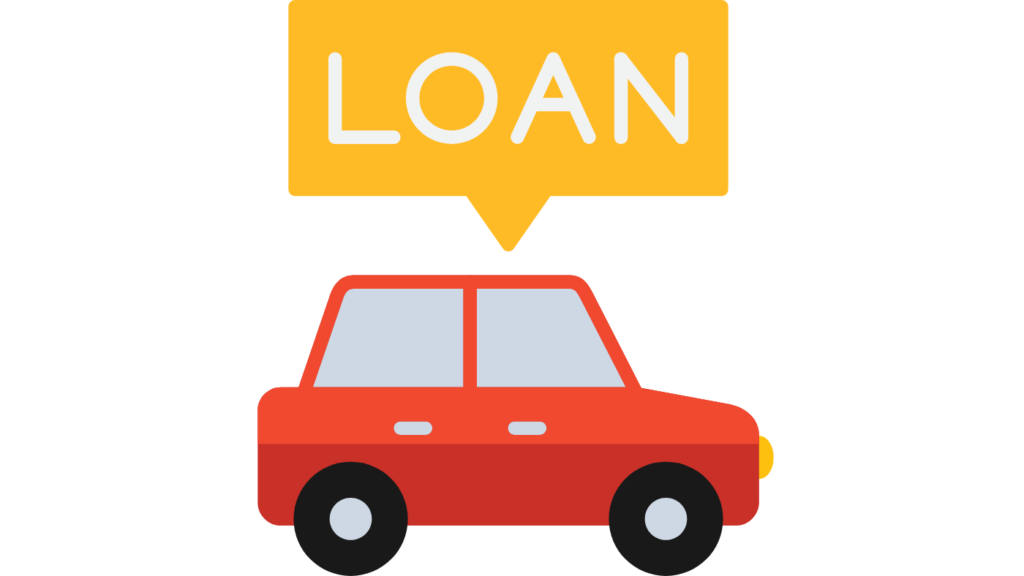Navigating the world of auto financing in Canada can be challenging, especially for those with limited or poor credit. A car loan with cosigner Canada offers a practical solution, enabling individuals to secure financing for a vehicle with the support of a trusted cosigner.
This arrangement involves a third party—typically a family member or close friend with strong credit—who agrees to share legal responsibility for the loan, ensuring repayment if the primary borrower defaults. This guide provides an in-depth exploration of car loan with cosigner Canada, covering the process, requirements, benefits, risks, and key considerations for both borrowers and cosigners.
For authoritative insights on car financing, visit the Financial Consumer Agency of Canada. Additionally, resources like Quick Approvals can assist in finding suitable loan options tailored to your needs.
Understanding What is a Cosigner for a Car Loan Canada

A cosigner for a car loan Canada is an individual who co-signs the loan agreement, pledging to repay the loan if the primary borrower cannot. Unlike a co-borrower, the cosigner does not have ownership rights to the vehicle but is equally liable for the debt. This arrangement is common for borrowers who lack sufficient credit history, have low credit scores, or face income challenges. The cosigner’s strong financial profile reassures lenders, reducing the perceived risk.
For example, a recent graduate with no credit history might rely on a parent to cosign, while someone recovering from financial setbacks could use a cosigner to secure better loan terms. Both parties’ credit scores are affected by the loan’s performance, making trust and communication vital.
Exploring How to Get a Car Loan with a Cosigner in Canada
Securing a car loan with cosigner Canada involves a structured process. Here’s a step-by-step guide:
- Select a Cosigner: Choose someone with a credit score above 700 and stable income, such as a parent or spouse, who trusts you to manage payments responsibly.
- Prepare Documentation: Gather proof of identity (e.g., driver’s license), income (e.g., pay stubs), and address (e.g., utility bill) for both parties.
- Research Lenders: Apply through banks, credit unions, dealerships, or online platforms like Quick Approvals that offer cosigned loans.
- Review Loan Terms: Examine interest rates, repayment periods (typically 24–84 months), and penalties for late payments.
- Sign the Agreement: Both the borrower and cosigner must sign, acknowledging their joint responsibility.
Maintaining transparency with the cosigner about payment schedules is crucial to avoid disputes. For tips on shopping for auto financing, consult the Financial Consumer Agency of Canada.
Securing the Best Car Loan Rates with Cosigner Canada
A cosigner’s strong credit can unlock best car loan rates with cosigner Canada, as lenders view the loan as less risky. Interest rates for cosigned loans may range from 4% to 8%, compared to 10% or higher for bad credit loans without a cosigner. Factors influencing rates include:
- Credit Scores: A cosigner with a score above 700 can significantly lower rates.
- Loan Term: Shorter terms (e.g., 36 months) often have lower rates but higher monthly payments.
- Down Payment: A larger down payment reduces the loan amount, potentially lowering rates.
To find competitive rates, compare offers from multiple lenders. Dealerships often partner with banks or finance companies, but direct applications to financial institutions may yield better terms. Online tools can simplify this process, ensuring you secure favorable car loan rates with cosigner Canada.
Meeting Car Loan Requirements with Cosigner Canada

Lenders impose specific car loan requirements with cosigner Canada to assess eligibility. These typically include:
| Requirement | Details |
|---|---|
| Credit Check | Primary borrower’s credit may be poor (below 600), but cosigner’s score should be 700+. |
| Income Verification | Both parties provide pay stubs or tax documents to prove ability to repay. Minimum income is often $1,800/month. |
| Down Payment | Optional but recommended (e.g., 10–20% of vehicle cost) to reduce loan amount. |
| Auto Insurance | Mandatory to protect the vehicle, which serves as collateral. |
| Vehicle Age | Loans often cover new or used cars up to 7 years old. |
New immigrants or foreign workers may also qualify with a cosigner, provided they meet income and residency requirements. Preparing these documents in advance streamlines the application process.
Answering Can a Cosigner Help Get a Car Loan in Canada?
It seems likely that a cosigner can significantly improve approval odds for a car loan with cosigner Canada. Lenders are more willing to approve applications when a cosigner with good credit (score above 700) and stable income guarantees repayment. This is particularly beneficial for:
- Young Adults: Those with no credit history, like recent graduates.
- Newcomers: Immigrants establishing financial roots in Canada.
- Credit Rebuilders: Individuals recovering from bankruptcy or missed payments.
For instance, a borrower with a credit score of 550 might be denied a loan or face high rates (15%+). Adding a cosigner with a 750 score could secure approval at a 6% rate, saving thousands over the loan term.
Evaluating Pros and Cons of Cosigning a Car Loan in Canada
Cosigning a car loan with cosigner Canada offers benefits but also carries risks. Here’s a balanced overview:
- Pros for Primary Borrower:
- Increased approval chances, even with bad or no credit.
- Access to lower interest rates, reducing total loan costs.
- Opportunity to build credit through timely payments.
- Cons for Cosigner:
- Legal obligation to repay if the borrower defaults, risking financial strain.
- Potential credit score damage from missed payments.
- Reduced borrowing capacity, as the loan appears on the cosigner’s credit report.
Both parties should discuss expectations and contingency plans before signing. For cosigners, reviewing loan terms carefully, as advised by CIBC, is essential.
Navigating Car Loan with Cosigner for Bad Credit Canada

For those with poor credit (scores below 600), a car loan with cosigner for bad credit Canada can be a lifeline. Specialized lenders, including some dealerships and online platforms, cater to this market, often accepting cosigners to mitigate risk. While rates may be higher (8–12%) than for prime borrowers, a cosigner can still improve terms compared to solo applications.
For example, a $20,000 loan at 12% over 60 months costs $5,320 in interest. With a cosigner, the rate might drop to 8%, saving over $1,500. Platforms like Quick Approvals connect borrowers with lenders experienced in bad credit scenarios.
Explaining How Does Cosigning a Car Loan Work in Canada?
The mechanics of how does cosigning a car loan work in Canada involve joint responsibility:
- Application: Both borrower and cosigner submit credit and income details.
- Approval: Lenders assess the cosigner’s financial strength, often prioritizing their credit score.
- Agreement: Both sign the loan contract, typically for 24–84 months.
- Repayment: The borrower makes payments, but the cosigner is liable for defaults.
- Monitoring: Cosigners should track payments, as missed ones harm both credit scores.
If the borrower defaults, lenders may pursue the cosigner for payments or repossess the vehicle, leaving both parties liable for any remaining balance. Clear communication prevents surprises.
Assessing Is It Easy to Get a Car Loan with a Cosigner in Canada?
Getting a car loan with cosigner Canada is generally easier than applying alone with poor credit, but ease depends on:
- Cosigner’s Profile: A credit score above 700 and steady income simplify approval.
- Lender Policies: Some lenders have stricter cosigner requirements, like residency or relationship to the borrower.
- Borrower’s Finances: Even with a cosigner, lenders verify the borrower’s income to ensure affordability.
Challenges may arise if the cosigner has existing debts or if the borrower’s income is too low. Shopping around and using platforms like Quick Approvals can overcome these hurdles.
Additional Considerations
- Removing a Cosigner: Refinancing the loan after improving credit is the primary way to release a cosigner, though not all lenders allow early removal.
- Negative Equity: Cars depreciate quickly, risking negative equity (owing more than the car’s worth), especially with long-term loans.
- Consumer Protections: Federal laws apply to loans from banks, requiring disclosure statements. Provincial laws may cover non-bank lenders, per the Financial Consumer Agency of Canada.
Q&A Section
1. How to Get a Car Loan with a Cosigner in Canada?

To secure a car loan with cosigner Canada, identify a cosigner with a strong credit score (700+), collect documents like IDs and pay stubs, apply through a lender, review terms, and sign the contract. Both parties should agree on payment responsibilities to avoid conflicts. Resources like Quick Approvals streamline the process.
2. What Are the Best Car Loan Rates with Cosigner Canada?

The best car loan rates with cosigner Canada depend on the cosigner’s credit, loan term, and lender. Rates may range from 4–8% with a strong cosigner. Comparing offers from banks, credit unions, and dealerships is key. The Financial Consumer Agency of Canada recommends shopping around for optimal terms.
3. What Are the Car Loan Requirements with Cosigner Canada?
Car loan requirements with cosigner Canada include credit checks (cosigner’s score ideally 700+), income verification ($1,800/month minimum), optional down payments, and auto insurance. Both parties submit documents like driver’s licenses and pay stubs. Meeting these standards boosts approval chances.
4. Can a Cosigner Help Get a Car Loan in Canada?
Yes, a cosigner can significantly aid in securing a car loan with cosigner Canada, especially for borrowers with scores below 600 or no credit history. The cosigner’s financial strength reassures lenders, improving approval odds and potentially lowering rates.
5. What Are the Pros and Cons of Cosigning a Car Loan in Canada?
For borrowers, pros and cons of cosigning a car loan in Canada include easier approval and credit-building opportunities, but cosigners risk credit damage and debt liability if payments are missed. Both should review terms, as advised by CIBC.
Conclusion
A car loan with cosigner Canada is a valuable option for Canadians facing credit or income barriers to car ownership. It offers access to financing, potentially at lower rates, but requires careful consideration of responsibilities for both borrower and cosigner. By selecting a trustworthy cosigner, comparing lenders, and maintaining timely payments, this arrangement can lead to successful vehicle ownership and credit improvement.
For further guidance, explore resources from the Financial Consumer Agency of Canada or consult platforms like Quick Approvals to find tailored loan solutions. Open communication and informed decisions are key to a positive cosigning experience.


